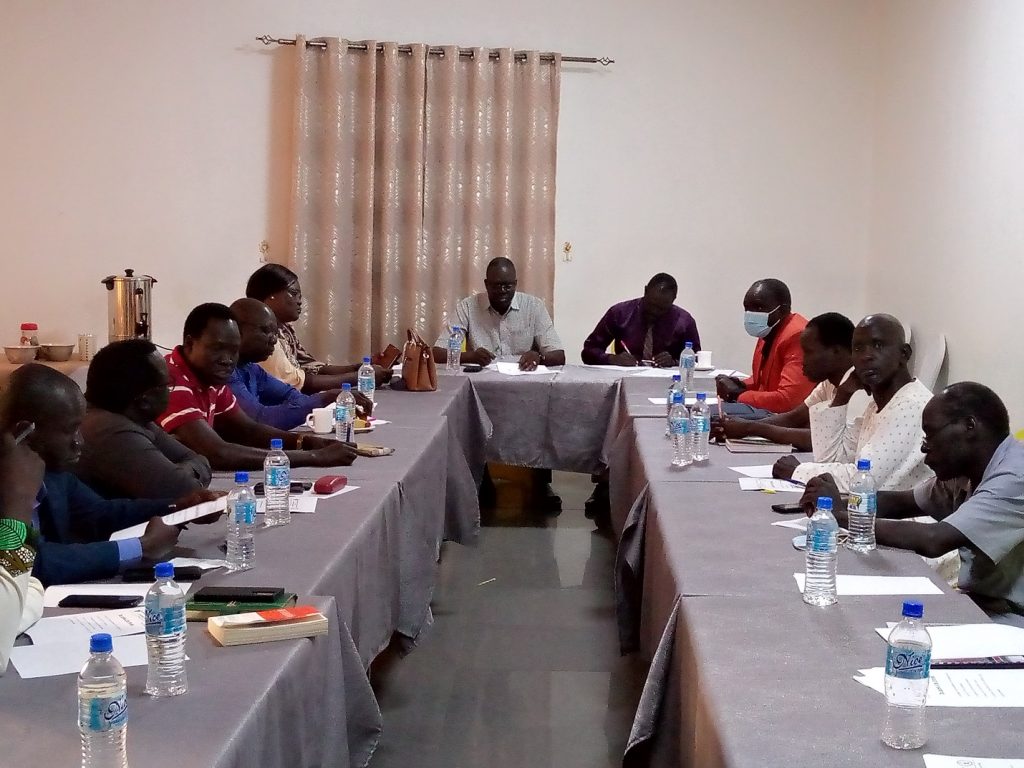
By William Madouk Garang
South Sudan Workers Trade Union Federation (SSWTF) has called on staff working at the oil sector to unite for common purpose of implementing the Unified Human Resources Policy and to review their constitution.
The Chairperson of the Workers Trade Union of Petroleum and Mining, Dut Baak Wol welcomed the government’s directives to oil operators to implement the Unified Human Resource Policy Manual.
In his speech during the meeting, Wol said starting from the month of July the union will subtract monthly pay from members decrying that since the formation of the Union there is no monthly subscription collected.
“SSWTF leadership directs all sub-offices of the Workers Trade Union of Petroleum and Mining from the month of July 2022 to deduct monthly subscriptions,” Wol said.
“Since the formation of the Union, there is no what so call monthly subscription because the Unified Human Resource policy is the guideline to be implemented. We need the implementation to be healthy implementation as all of us agreed,” he added.
On 23rd February this year, the Ministry of Petroleum signed a deal to harmonize and implement a unified human resource policy manual after a couple of years of sporadic protest by national staff.
The national staff working with oil companies across the country termed variances in payment among local and foreign staff as ’unfair treatment’ especially when they are having the same job title and doing same work.
The joint operating companies in South Sudan’s oil sector – comprise DAR Petroleum Operating Company (DPOC), Greater Pioneer Operating Company (GPOC), and Sudd Petroleum Operating Company (SPOC).
Meanwhile, the Minister of Petroleum, Puot Kang Chuol stated that the Unified Human resources policy had taken a while due to different views since 2020 among partners but finally they reached consensus for its execution which will be a win-win situation for all staff.
Minister Kang stressed that since everybody will now get his right share, the oil production must be increased to improve revenue generated for the country’s welfare and people of South Sudan at large.



